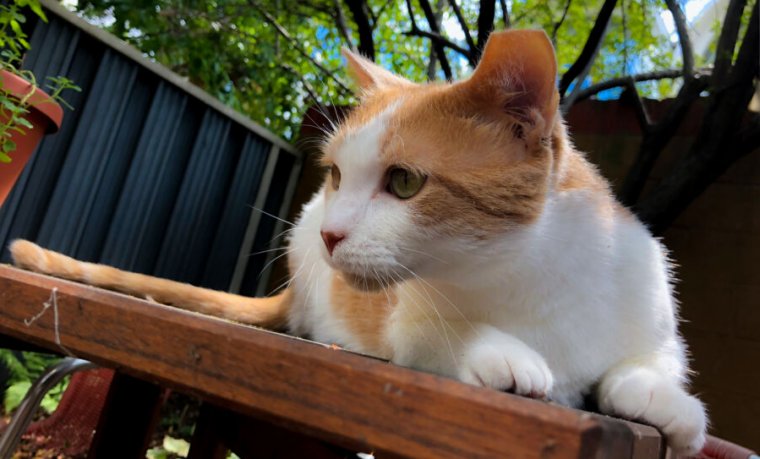Keep calm and kitty on —
Cats can infect other cats with coronavirus, but is there cause for concern?
Jonathan M. Gitlin
–



Enlarge / Nigel appears unconcerned about catching coronavirus, probably because he isn’t allowed to go beyond his garden without a human escort.
Jonathan Gitlin
Domestic cats can catch the SARS-CoV-2 coronavirus, and when kept in very close proximity, they can infect other cats. That’s the finding of a letter published in this week’s New England Journal of Medicine. In the study, conducted by a team of virologists led by Professor Yoshihiro Kawaoka at the University of Wisconsin, three young domestic cats were infected with the SARS-CoV-2 virus, and one day later each was then kept in close proximity to an uninfected cat. Within five days, all three of the previously uninfected cats also tested positive for the virus.
This isn’t the first report of feline infection with SARS-CoV-2. In early April, a Chinese study published in Science found that ferrets (which are used in research into respiratory diseases) and cats—but not dogs, pigs, chickens, or ducks—could be infected with the novel coronavirus, and cats could become infected via airborne transmission. A week later, the US Centers for Disease Control and Prevention confirmed two cases of pet cats that tested positive for SARS-CoV-2. And by late April, eight big cats at the Bronx Zoo (a mix of tigers and lions) had also become infected.
It’s hard to get an exact count of pet cats in the US and whether they do or don’t outnumber pet dogs. Even if felines are only the second-most popular American pet, this news will surely raise some pulses. But there’s plenty of reasons to keep calm.
Cats don’t appear to get very sick
In the Wisconsin study, none of the cats showed any symptoms from infection, even 24 days after the initial inoculation. And although both cats in the earlier CDC report were symptomatic, they exhibited mild respiratory illness, and both were expected to make full recoveries. Similarly, some of the infected lions and tigers did develop a cough, but the zoo said that all were “behaving normally, eating well” and that their coughing was “greatly reduced.” So an infected cat appears unlikely, based on the evidence so far, to develop a serious human-like COVID-19 disease.
What’s more, although cats can become infected and then shed virus in saliva, they don’t appear to be super-contagious. In April’s CDC report, one cat was likely infected by its human (who tested positive before the cat developed symptoms itself), and a second cat in that household remained uninfected. In the other household with a cat that tested positive, none of its humans got sick with COVID-19. And Stat News reports that in the Wisconsin study, cats that were kept in cages a foot (30cm) away from the infected cat cages did not test positive, either.
What should you do with your cat?
The best thing you can do to protect your cat from the coronavirus is also the best thing you can do to protect yourself—keep them indoors and socially distant from other animals and humans. Unlike dogs, many pet cats are allowed to roam free, and some of these cats spend time in multiple households. This practice was increasingly seen as unwise pre-COVID-19, both for the cat—indoor-only cats have much longer lifespans—and for local bird populations. It seems even less defensible now.
If you and your cat(s) both live indoors now, and you’re not symptomatic or infected, both the CDC and academic researchers say there’s no reason not to keep snuggling with the little fur ball. If you have tested positive or are symptomatic, then you ought to limit your interactions with your pet cat(s) just as you would other members of your household. “Cats are still much more likely to get COVID-19 from you rather than you get it from a cat,” said Keith Poulsen, director of the Wisconsin Veterinary Diagnostic Laboratory. The CDC recommends that people sick with COVID-19 wear a cloth face covering and wash their hands before and after interacting with a pet if there is no uninfected person to feed or care for it.
What you absolutely shouldn’t do is start retaliating against cats you see in your neighborhood. There is “no justification in taking measures against companion animals that may compromise their welfare,” Kawaoka said.
DOI: New England Journal of Medicine, 2020. 10.1056/NEJMc2013400 (About DOIs).

